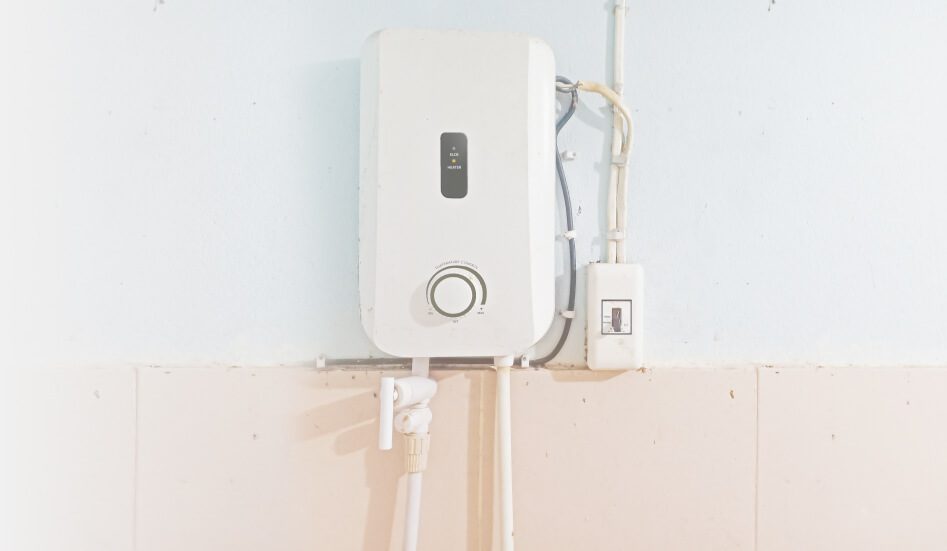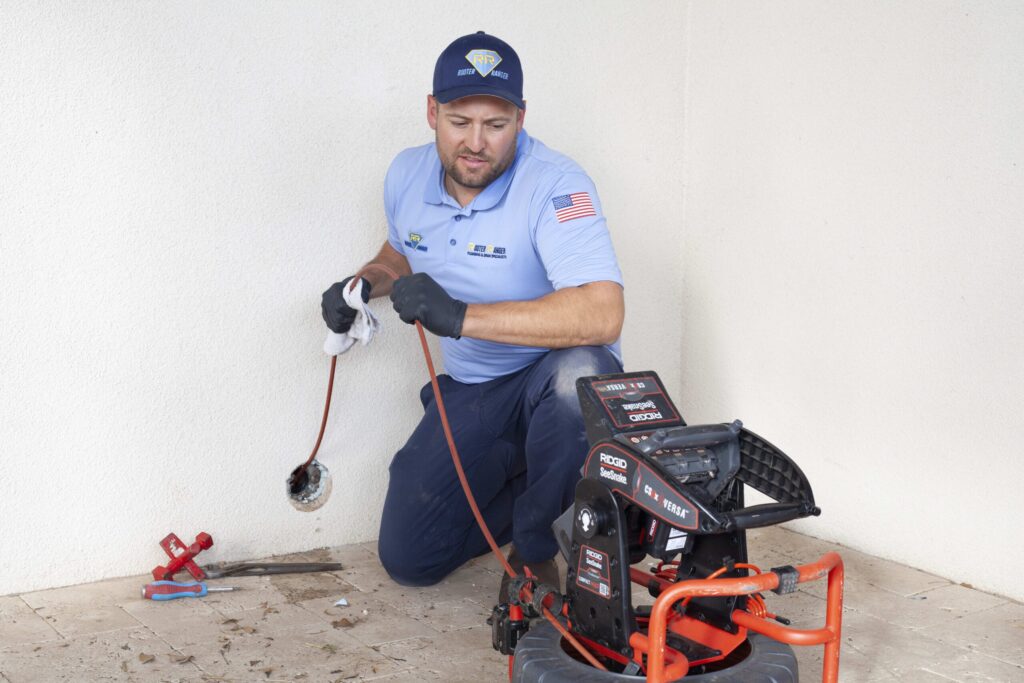Blog
Is a Tankless Water Heater Worth It in Arizona?

Tankless water heaters are gaining ground across Arizona, and not just because they save energy. In Phoenix, Tucson, Sun City, and the surrounding areas, homeowners are dealing with hard water, rising utility costs, and plumbing systems that are starting to show their age. These challenges make tankless systems an appealing option. But do they deliver what Arizona homes need, or is the upgrade all hype?
This guide explores how tankless systems work, why they are gaining popularity, and whether they are a smart fit for your home.
What Is a Tankless Water Heater and How Does It Work?
A tankless water heater, also known as an on-demand water heater, provides hot water only when you need it. When a hot water tap is turned-on, cold-water flows through the unit and is quickly heated by either gas or electricity. There is no storage tank holding pre-heated water.
Since water is heated on demand, tankless models can provide a continuous supply without the standby energy loss that comes with traditional systems. They are also much smaller and can be mounted on a wall, making them a practical option for many Arizona households.
Why Arizona Homeowners Are Considering Tankless Water Heaters
With Arizona's hot climate and frequent water usage, more homeowners are rethinking how they heat water. Common motivations include:
- Replacing outdated or inefficient tank-style water heaters
- Wanting to free up space in laundry rooms or garages
- Needing a more energy-efficient option to reduce monthly bills
- Looking for longer-lasting equipment
- Installing a system that keeps up with large family demand
- Taking advantage of rebates or utility incentives
Pros of Tankless Water Heaters in Arizona
Tankless water heaters offer several benefits that appeal to Arizona homeowners:
- Continuous hot water, even during high-demand times
- Lower energy bills due to reduced standby heating
- Compact size that saves space
- Reduced risk of water damage from tank leaks
- Longer average lifespan with proper maintenance
- Cleaner water with less sediment buildup
These advantages are especially helpful in homes with older plumbing, where reliability and efficiency are top priorities.
Potential Drawbacks to Be Aware Of
While tankless systems have many strengths, they are not ideal for every home. Consider these factors before deciding:
- Higher initial cost for equipment and installation
- May require upgrades to gas lines or electrical panels
- Performance can drop if multiple appliances run at once
- Hard water can cause scaling if not properly filtered
- Maintenance is essential to avoid buildup from mineral-rich water
Homeowners in Arizona should weigh these drawbacks carefully, especially in areas with hard water and aging infrastructure.
Tankless Water Heater vs. Traditional: What’s Better for Arizona Homes?
Both systems can provide reliable hot water, but their differences matter in Arizona's unique environment. Traditional water heaters are less expensive upfront and simpler to install, which can make them a good fit for homes with limited renovation budgets. However, they take up more space and use more energy over time.
Tankless systems are better suited for households that use hot water frequently, have limited space, or are planning long-term energy savings. The decision depends on your home’s plumbing, energy use, and budget.
How Arizona's Hard Water Affects Tankless Water Heaters
Arizona is known for its hard water, especially in cities like Phoenix and Tucson. This means water has high levels of calcium and magnesium, which can lead to mineral buildup inside plumbing and appliances. For tankless water heaters, that buildup can reduce efficiency and shorten lifespan if not properly managed.
Installing a water softener or sediment filter can help protect your system. Many professional installers in Arizona recommend pairing these solutions during tankless water heater installation. Regular maintenance, such as flushing the system, is also important for keeping performance strong in desert climates.
Is a Tankless Water Heater the Right Choice for Your Arizona Home?
The answer depends on your home’s specific needs. If you live in a larger household, value energy efficiency, or plan to stay in your home for many years, the long-term benefits of a tankless system may outweigh the initial investment. If your current unit is failing or you’re remodeling your plumbing, this could be the ideal time to make the switch.
However, if your home has very high-water demand or if installation upgrades are out of budget, a traditional system may still be the better choice for now.
Contact Rooter Ranger for Tankless Water Heater Services
If you're ready to explore whether a tankless water heater is the right fit for your home, Rooter Ranger is here to help. Our licensed technicians understand the unique plumbing conditions in Phoenix, Scottsdale, Tucson, and Sun City. We offer professional guidance, seamless installations, and long-term support to ensure your water heater performs efficiently for years to come. Reach out today at (602) 428-5437 to schedule a consultation or book online to get started.
Frequently Asked Questions
The cost depends on the size of the unit, the type of fuel used, and whether any upgrades to your plumbing or electrical system are needed. On average, the total cost including installation can range from $2,000 to $4,500.
With proper maintenance, a tankless water heater can last 20 years or more, which is significantly longer than most traditional units.
Hard water can cause mineral buildup that affects performance, but installing a filter or water softener can reduce the risk and extend the life of your system.
Yes, but some homes may require additional work, such as resizing gas lines or upgrading electrical connections. A professional installer can assess what is needed.





